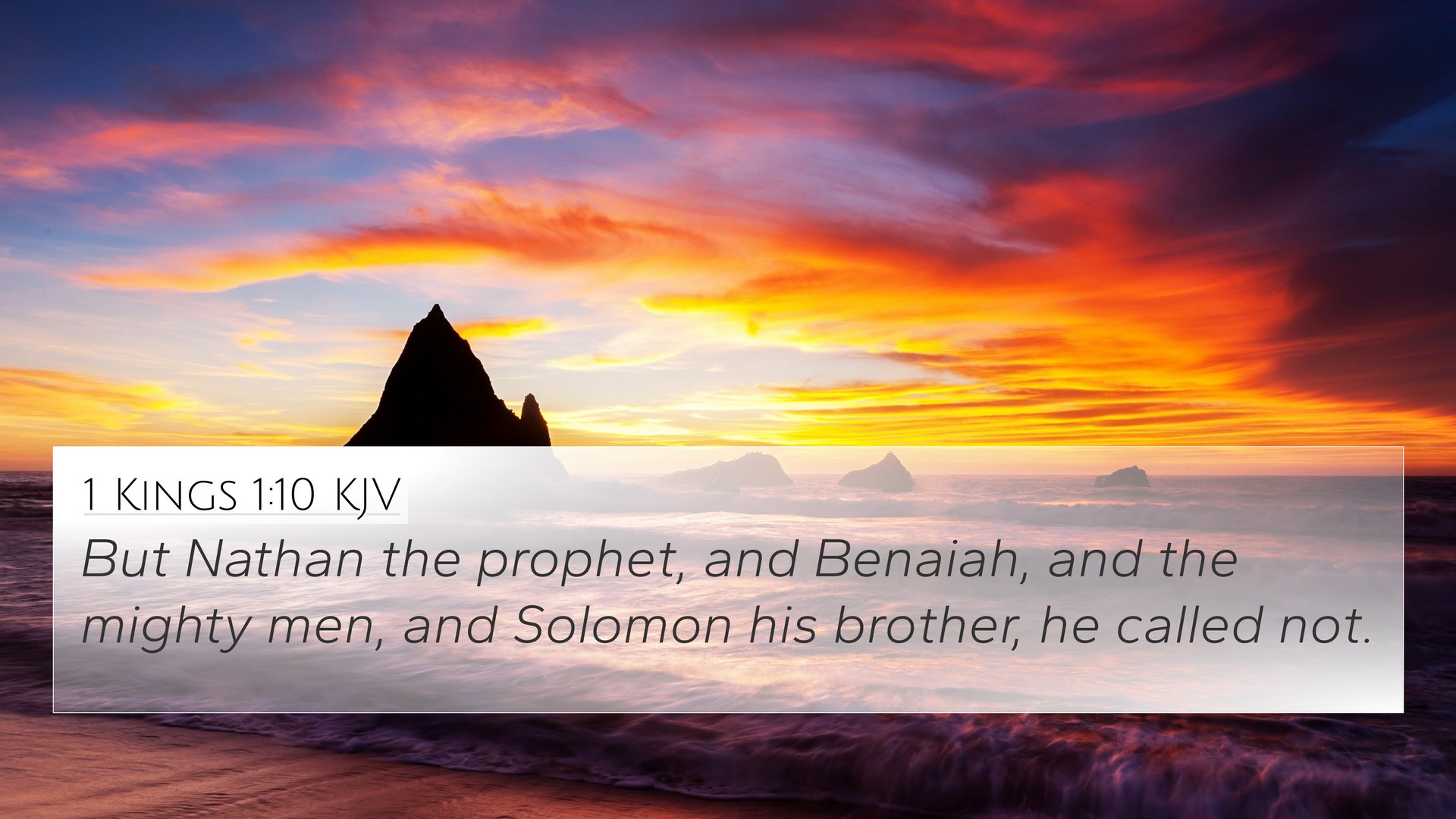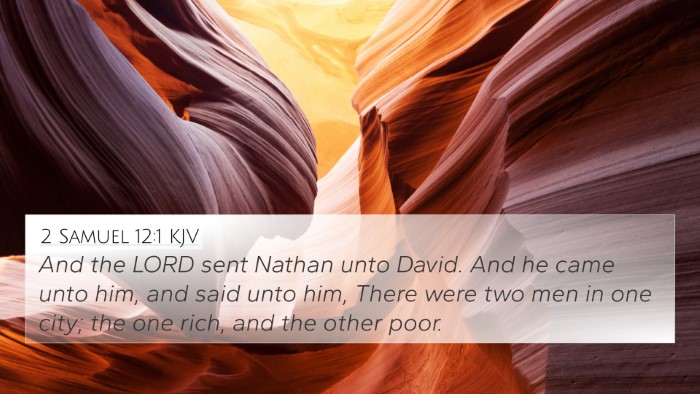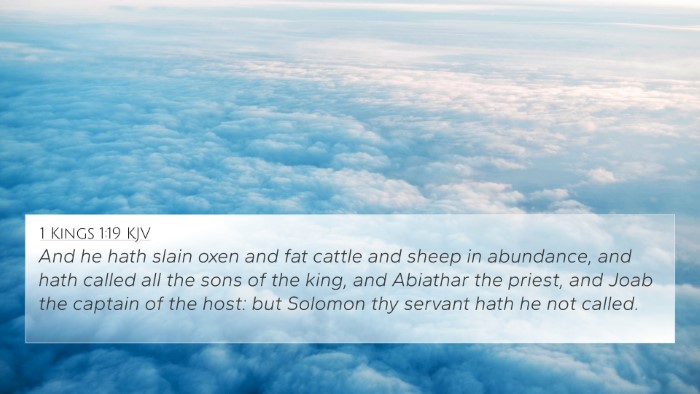Understanding 1 Kings 1:10
Verse: "But Nathan the prophet, and Benaiah, and the mighty men, and Solomon his brother, he called not."
Analysis of 1 Kings 1:10
This verse marks a significant moment in the transition of power within the kingdom of Israel. The context is the scheming of Adonijah, who sought to exalt himself to the throne, excluding key figures who were loyal to King David and had God’s favor.
Commentary Insights
- Matthew Henry: Highlights the implications of Adonijah's actions in attempting to establish himself as king by excluding those who aligned with Solomon. It showcases the importance of rightful succession and divine order in leadership.
- Albert Barnes: Points out the connotations of political maneuvering and betrayal, emphasizing how Adonijah’s choices reflect not merely personal ambition but a broader theme of rebellion against God's anointed.
- Adam Clarke: Elaborates on the consequences of Adonijah’s selective association, underscoring the dangers of ignoring wise counsel and strong leadership structures that God had established through David.
Thematic Connections and Cross-References
This verse interlinks with several other passages within Scripture, creating a rich tapestry of biblical themes concerning leadership, divine authority, and the consequences of rebellion. Below are significant cross-references:
- 1 Samuel 16:1-13: God's choice of David as king highlights the significance of divine appointment over human desire.
- 2 Samuel 15:10: Absalom's revolt and its ramifications illustrate the instability that arises from rejecting divinely appointed rulers.
- 1 Kings 1:5: Illustrates Adonijah’s ambitions and actions leading to the events captured in our verse.
- Proverbs 16:18: "Pride goes before destruction," capturing the essence of what Adonijah experienced through his prideful endeavors.
- Romans 13:1-2: Paul’s instruction on submission to governing authorities draws a parallel to the larger biblical teaching on leadership and order.
- Hebrews 13:17: Encouragement to obey and submit to leaders who watch over souls, reflecting on God’s design for leadership.
- 1 Chronicles 28:4-7: God’s explicit choice of Solomon reminds believers of the importance of following God’s leadership choices rather than human ambitions.
- Matthew 23:12: Jesus references the fallen nature of pride that was evident in leaders like Adonijah.
- Isaiah 40:23-24: God’s sovereignty is presented over rulers, emphasizing that all powers will ultimately bow to His greater authority.
- Ephesians 6:10-12: Highlights the spiritual battle at play behind earthly disputes, drawing attention to the importance of God's sovereignty in human affairs.
Application and Reflection
The implications of 1 Kings 1:10 encourage believers to reflect on the nature of their ambitions and their alignment with God’s will. It serves as a reminder that true authority comes from God and that rebellion against divine leadership can lead to division and chaos.
Tools for Further Study
For those seeking to delve deeper into the topic of biblical leadership and the connections between influential biblical texts, several resources can enhance your study:
- Bible concordance for topical studies.
- Bible cross-reference guide to identify similar themes across Scriptures.
- Cross-reference Bible study tools for mapping interrelated verses.
- Resources for identifying Old and New Testament connections.
- Comprehensive Bible cross-reference materials to enrich understanding.
Conclusion
1 Kings 1:10 is a crucial verse that opens up discussions on leadership, divine sovereignty, and the consequences of human ambition. The connections made through cross-referencing enhance our understanding of biblical narratives and their applications to our lives today. Studying these parallels can illuminate God's overarching plan and ask us to consider where our loyalties lie—and if they align with His will.






